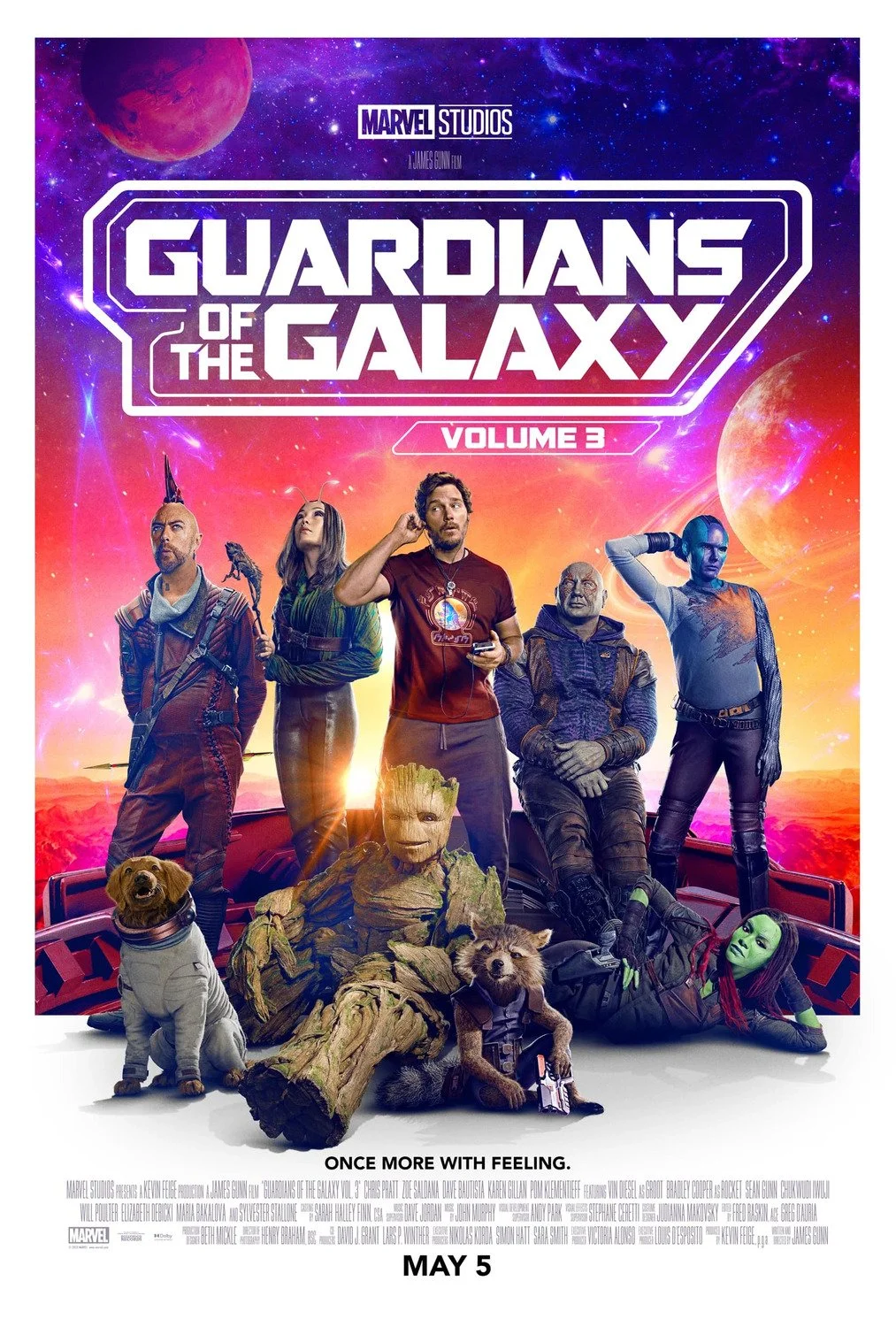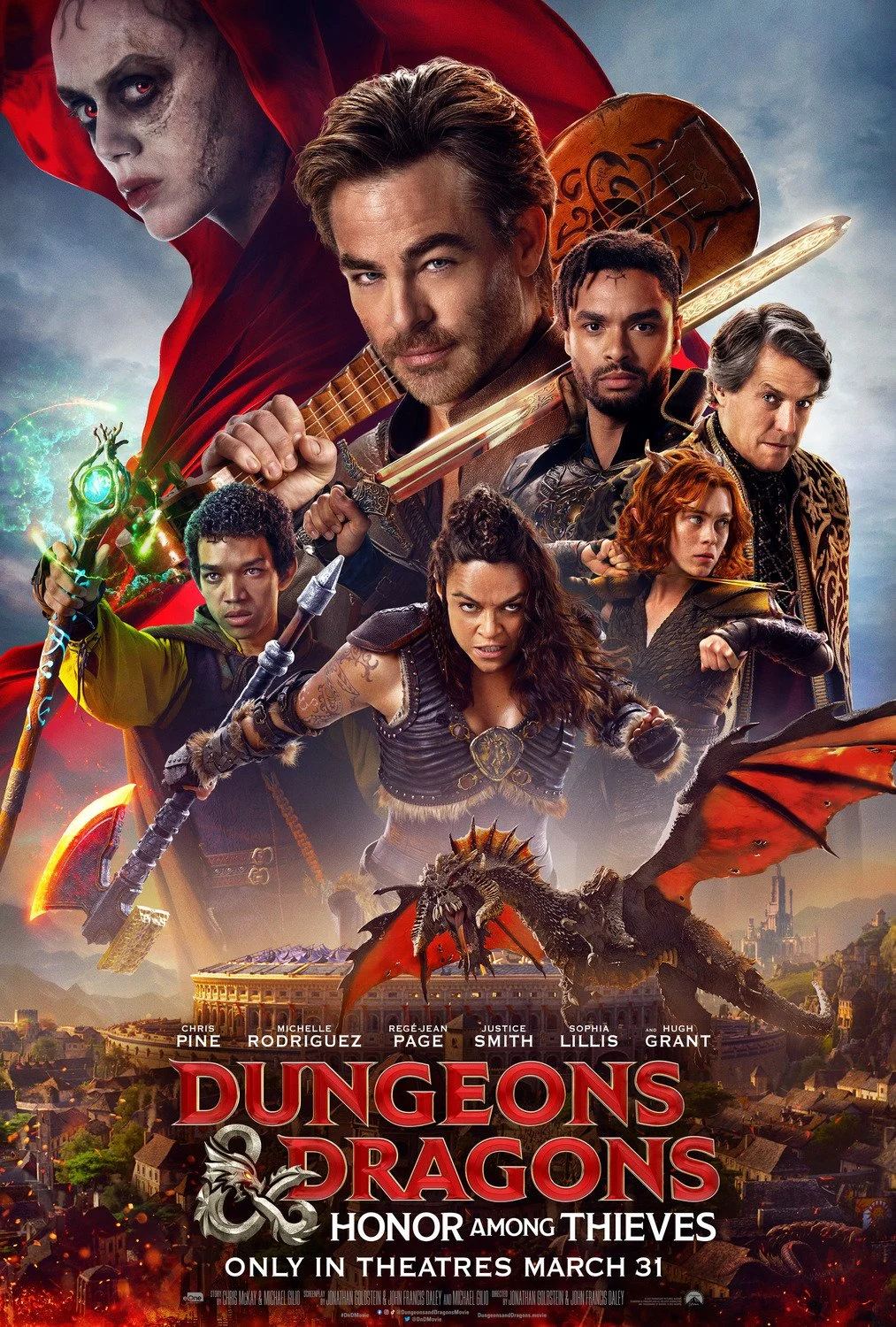Movie Review : Guardians of the Galaxy Vol. 3 (2023)
There is nothing quite like the Marvel Cinematic Universe and it's a good thing. What once was a historically ambitious storytelling endeavour turned into a conveyor belt of uncomfortably similar movies where everyone had to save the universe all the time from alien tyrant with an inexplicable axe to grind against freedom and existence. Although not a shining beacon of originality, the Guardians of the Galaxy managed to remain a breath of fresh air by featuring interesting characters and unlikely premises.
A third movie was always going to happen whether we liked it or not and we were all going to watch it. Guardians of the Galaxy Vol. 3 is fine. It was designed to be fine and marginally different from other Marvel movies, which is both fun in a harmless way and without any surprise, like an occasional trip to McDonald’s.
In Guardians of the Galaxy Vol. 3, our ragtag group of intergalatic saviours are minding their own business in the aftermath of the big showdown with Thanos when a golden space bully with spectacular eyebrows (most certainly played by Will Poulter) decides to wreck Rocket Raccoon for an obscure reason. While trying to save their generically modified friend’s life, the guardians discover he was created by an evil space corporation that is actively trying to bring him back and they will get the entire group for their efforts.
The Power of Friendship, But Better
Although they’re technically for the entire family, Marvel movies are aimed at kids. Sixteen years old and younger, I’d say. That’s why they’re stressing very sweet, idealistic themes like friendship and cooperation. It’s by fighting together, side by side, that a you can take down a bigger enemy and whatnot. It’s in most of their movies, but it always works better in Guardians of the Galaxy. It's always more fun and life affirming when they do it. How is that so? Because they chose to love one another already.
Guardians of the Galaxy Vol. 3 is a great film to help you understand the concept of family of choice. When Rocket Raccoon gets wrecked by Golden Eyebrows, Quill (Chris Pratt) is already bereaved of his romantic relationship to Gamora (Zoe Saldaña) and could've chosen to remain in the abusive cycle of self-pity and self-destruction, but he chooses not to. He technically doesn’t owe anything to Rocket Raccoon, but embracing his patriarch role to save his furry friend imbues his life with meaning.
…and that meaning comes from arbitrarily choosing Raccoon’s life is worth preserving because they’ve been through some shit together.
There’s a great scene in Guardians of the Galaxy Vol. 3 where Quill chooses just as arbitrarily to kill a bad guy (Nico Santos) by throwing him off a space ship and landing on him and subsequently chopping off a part of his head, which he does without batting an eyelash in order to save his friend. In this cold world, you get to decide what has meaning. Deprived of blood ties by fate and a porn star space God, Quill doesn’t let circumstances deprive him of a family. It all makes sense because he chooses that it does.
Friendship works better in Guardians of the Galaxy because they don’t have to learn it over and over again. They have to sacrifice to preserve it. It feels more real. Closer to home. Even original cyborg baddie Nebula (Karen Gillan) makes this arbitrary choice in order to preserve a sens of order after Thanos wrecked the galaxy. Albert Camus would probably refuse to watch this movie until he died if he'd was alive today, but he wouldn’t disagree with the ideas it promotes. Meaning is arbitrary. So are friendship and family.
It’s all Kevin Feige's fault
Guardians of the Galaxy Vol. 3 came out in theatres last May. It was both popular and a complete afterthought. Everyone wanted to see it, but no one cared and forgot about it almost immediately after. The film made its budget domestically and probably enough money worldwide to warrant a sequel that will allow this pattern of disposable entertainment to perpetuate itself. These characters arguably deserve a better fate, but they are probably condemned to crash with the Marvel gravy train, which is slowly going off rails.
Without spoiling anything, the ending of the movie itself foreshadows that it's probably better if it doesn’t have a sequel. That you can save the universe all the times you want, but it’ll end up ringing hollow if the characters don’t end up engaging in more intimate stakes. I mean, the guardians have fought off their second eugenist in a row and you could argue that Thanos was somewhat of a eugenist himself. I never really bothered to learn Will Poulter's character’s name and it wasn’t just my cynicism acting up.
Marvel had this ambitious idea of creating a self-perpetuating cinematic universe that would always please everybody and that would never run out of steams, but they’ve written themselves in a corner by wanting to be big and bold all the time and they’re quickly run out of things that feel important. I cared about Rocket Raccoon in Guardians of the Galaxy Vol. 3 and the eugenist who created him (who I never bothered learning the name of) never left like anything, but a cardboard baddie he'd eventually deal with.
That’s a problem for Marvel’s Cinematic Universe's long-term future and that’s all Kevin Feige's fault. He's singlehandedly written popcorn cinema into a narrative corner.
*
Guardians of the Galaxy Vol. 3 was fine. It provided straightforward thrills, James Gunn’s counterintuitive dialogue that works so goddamn well and functional, intelligible cinema that makes the most out of its propositions. But will I remember anything from it in three months? Probably not? The guardians have kind of run their course. Nothing that makes money ever does in its cold world, but you can watch this movie and decide the guardians have run their course too. Meaning is arbitrary.
So are your choices of entertainment. You get to decide.







